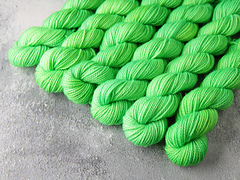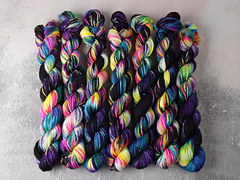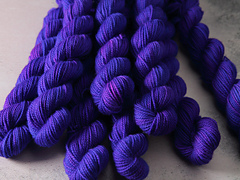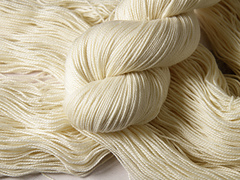yarns > It's a Stitch Up > Favourite Sock

Favourite Sock

A note from the business owner:
For all those out there trying to stash or link our mini skeins to their projects, I am truly sorry that you cannot do this. You will also find that your previously added stashes and projects have been linked to the wrong yarns. Unfortunately, Ravelry will let super-mods run rampage over the integrity of data until you the community complain to them. I have put time and effort into maintaining the yarn list on this platform for someone who has never even seen my yarn or visited my website to tell me that I can’t possibly dye a solid colour (speak for yourself). I am no longer going to maintain a yarn list here, and I’m really sorry because I know that affects your ability to organise your shash.
Favourite Sock is super-soft, yet hard-wearing enough to be used for socks. It has beautiful stitch definition and unparalleled ‘smooshiness’. It’s the perfect signature yarn for us to showcase our full palette of dye effects.
Not just for socks, it’s perfect for any 4 ply/fingering weight wool project, especially baby clothes, gloves and lightweight sweaters, and being a superwash yarn, it’s easy to care for too.
Our merino is farmed in Argentina, where it is sorted by skilled workers to ensure consistent high quality. It is guaranteed mulesing-free and farmers are supported by the mill to raise their sheep under ethical farming practices.
Why don’t you have a Nylon blend sock yarn?
Lots of reasons! Nylon is plastic, it’s made from petrochemicals, we don’t love how it feels to wear, but mostly because it causes microfibre pollution.
What the heck is microfibre pollution?
With every wash, our clothes release tiny strands called microfibres (one piece of clothing can release 700,000 fibres per wash). These microscopic fibres cannot be effectively filtered-out and, while natural fibres like wool break down, synthetic fibres make their way into our fibres and oceans intact. Micro-plastics are thought to make up 15-31% of the plastic in our oceans. This invisible pollution is present in fish stocks worldwide and it has been confirmed to be in our food chain.
That’s scary s$~#!
We think so too, that’s why we decided to phase out Nylon and other plastic fibres in our yarns.
343 projects
stashed
397 times
- Page created: November 4, 2015
- Last updated: November 26, 2024 …
 popular colorways
popular colorways

6 stashed
6 projects

12 stashed
7 projects

4 stashed
6 projects

8 stashed

5 stashed
3 projects

10 stashed
7 projects

4 stashed
3 projects

8 stashed
5 projects

3 stashed
5 projects

3 stashed
4 projects

7 stashed
4 projects

18 stashed
4 projects

13 stashed
7 projects

7 stashed
8 projects

8 stashed
2 projects

6 stashed
2 projects

3 stashed
4 projects

8 stashed
3 projects



